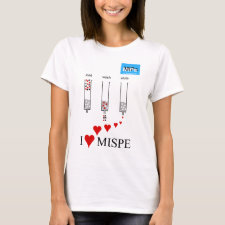
Authors: Soheilifar S, Rajabi-Moghaddam MJ, Karimi G, Mohammadinejad A, Motamedshariaty VS, Mohajeri SA
Article Title: Application of molecularly imprinted polymer in solid-phase microextraction coupled with HPLC-UV for analysis of dibutyl phthalate in bottled water and soft drink samples.
Publication date: 2018
Journal: Journal of Liquid Chromatography & Related Technologies
Volume: 41
Issue: (9)
Page numbers: 552-560.
DOI: 10.1080/10826076.2018.1488138
Abstract: In this study the optimized molecularly imprinted polymer as a highly selective sorbent toward dibutyl phthalate was used in molecularly imprinted solid-phase microextraction (MISPME) method as a clean-up and pre-concentration procedure before analysis by high performance liquid chromatography equipped with UV detector (HPLC-UV). The calibration of method was done in canned mineral water and soft drink as free dibutyl phthalate matrices. The calibration curves were plotted in the range of 0.01-2 μg mL-1with linear equations of y = 727.41x + 2.1706 (R2 = 0.9999) and y = 805.96x - 2.9927 (R2 = 0.9999) in canned mineral water and soft drink, respectively. Also limit of detection (LOD) and the limit of quantification (LOQ) value were 3 ng/mL and 0.01 μg/mL, respectively. The recoveries for extraction of dibutyl phthalate were in the range of 90.29% - 98.06%. Finally, calibrated MISPME method coupled to HPLC-UV (MISPME-HPLC-UV) was successfully developed for dibutyl phthalate residue control in commercial plastic bottled mineral water and soft drink samples sold in the market of Mashhad, Iran. Unfortunately, all commercial beverage samples had DPB residue above the limit of quantification. The results indicated that the calibrated MISPME-HPLC-UV method can be successfully applied for DBP analysis in bottled beverage samples
Template and target information: dibutyl phthalate, DBP
Author keywords: Bottled mineral water, bottled soft drinks, Dibutyl phthalate, molecularly imprinted polymer, solid-phase microextraction



Join the Society for Molecular Imprinting

New items RSS feed
Sign-up for e-mail updates:
Choose between receiving an occasional newsletter or more frequent e-mail alerts.
Click here to go to the sign-up page.
Is your name elemental or peptidic? Enter your name and find out by clicking either of the buttons below!
Other products you may like:
 MIPdatabase
MIPdatabase









